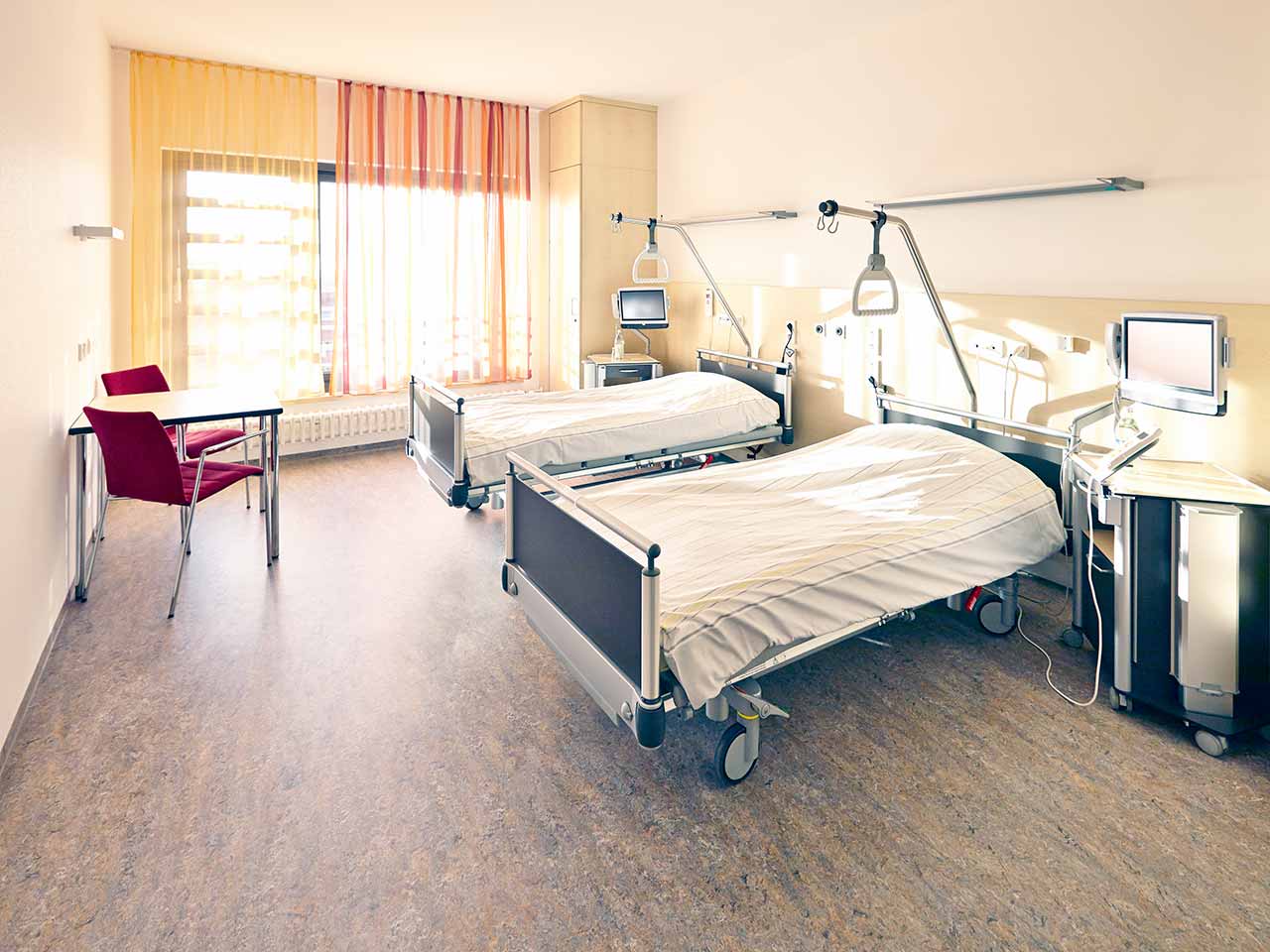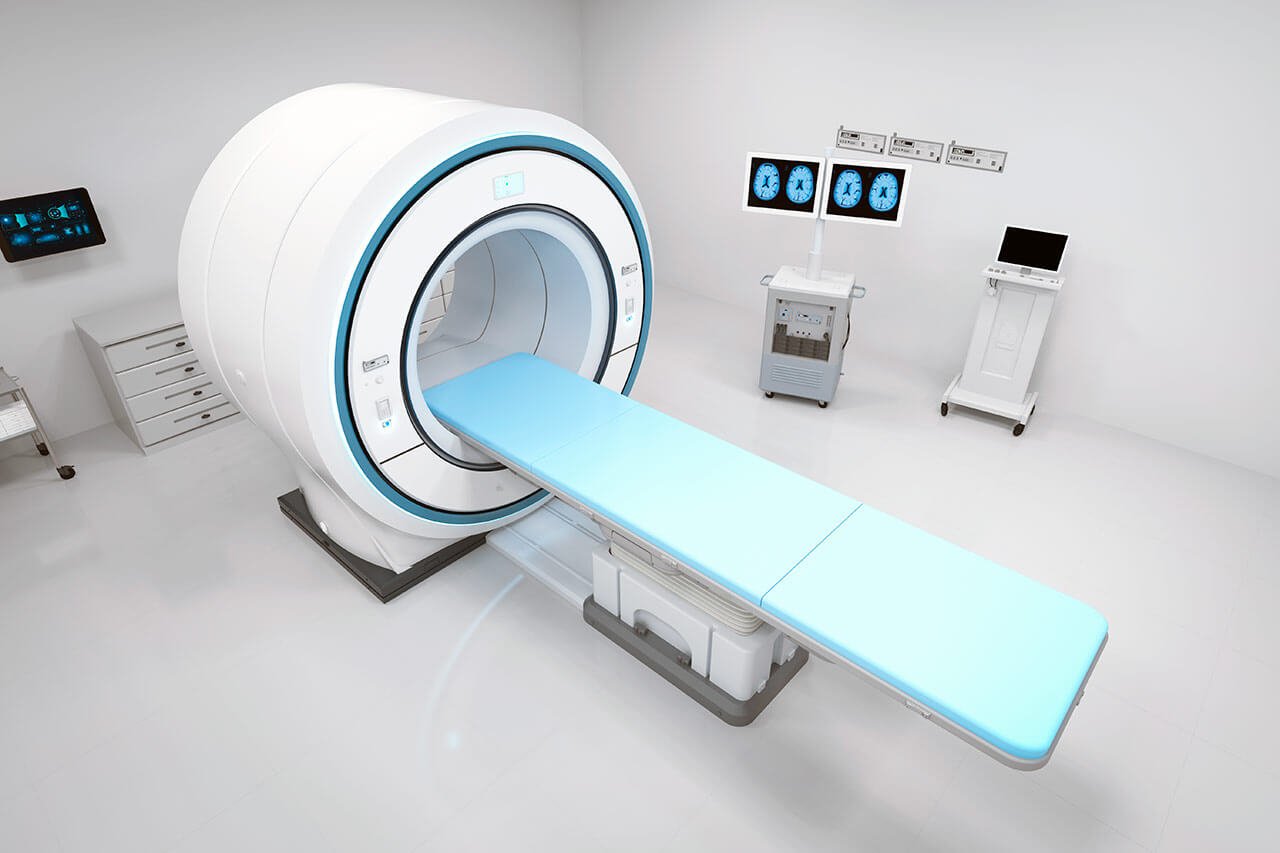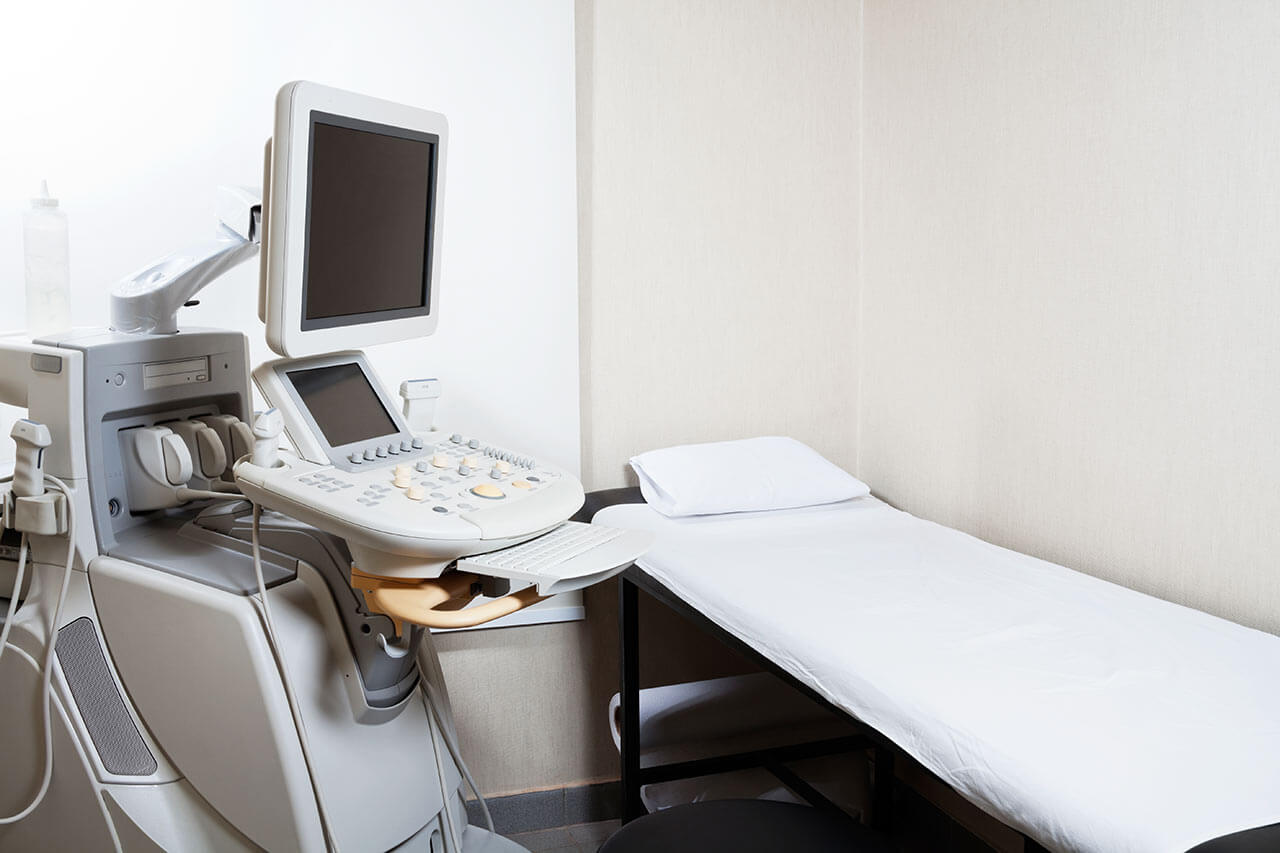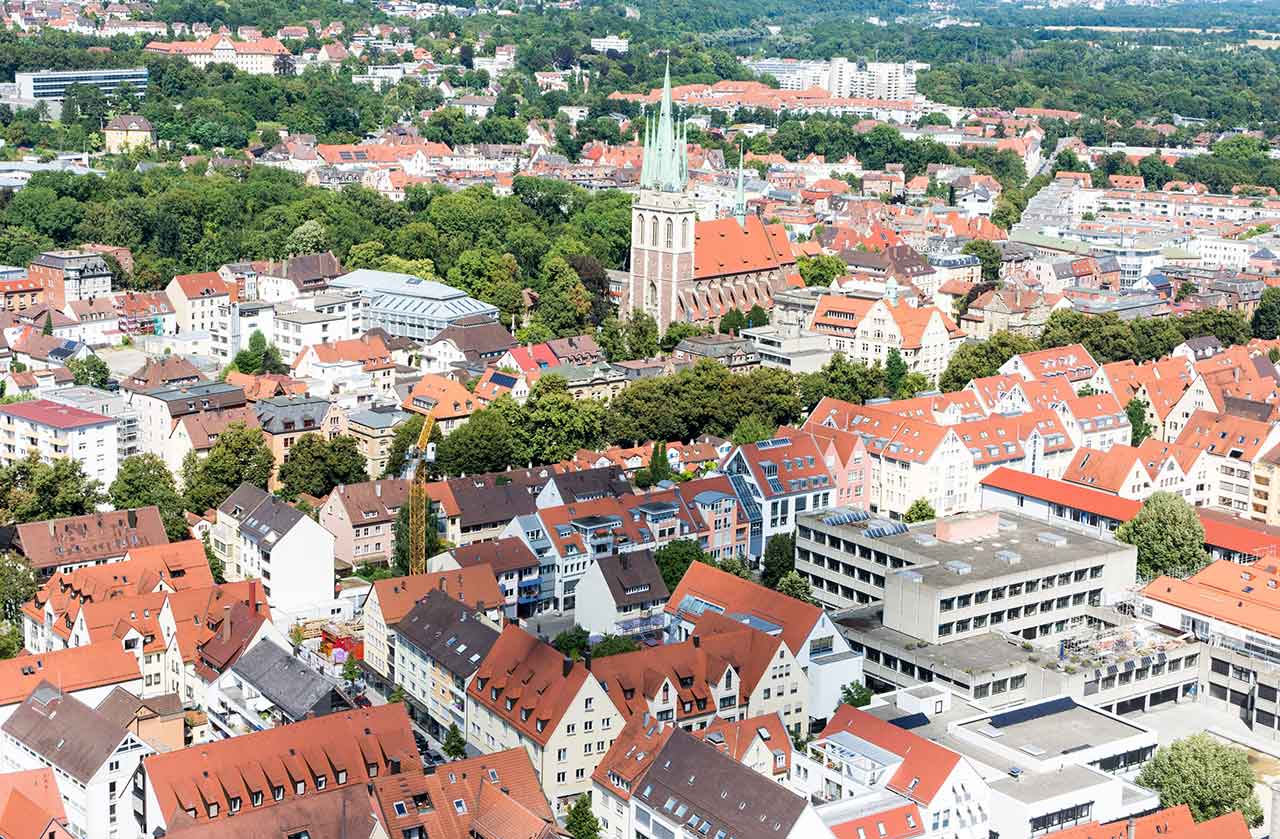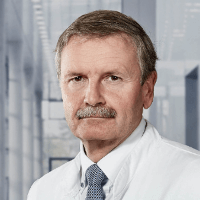
The program includes:
- Initial presentation in the clinic
- clinical history taking
- physical examination
- review of medical records
- laboratory tests:
- complete blood count
- general urine analysis
- biochemical analysis of blood
- indicators of inflammation (CRP, ESR)
- indicators blood coagulation
- x-ray examination of the knee
- CT/MRI scan of the knee
- preoperative care
- knee arthroscopy
- symptomatic treatment
- control examinations
- physiotherapeutic procedures
- orthopedic appliances
- the cost of essential medicines and materials
- nursing services
- full hospital accommodation
- explanation of future recommendations
Required documents
- Medical records
- X-ray examination, MRI/CT scan (if available)
Service
You may also book:
 BookingHealth Price from:
BookingHealth Price from:
About the department
Curriculum vitae
Higher Education and Postgraduate Training
- 1982 - 1988 Medical studies, Martin Luther University Halle-Wittenberg.
- 1988 Thesis defense with honors, Martin Luther University Halle-Wittenberg.
- 1992 Board certification in Orthopedics.
- 1993 Additional qualification in Sports Medicine and Chiropractic.
- 1994 Specialization in Rheumatology.
- 1996 Optional advanced training in Specialized Orthopedic Surgery.
- 1996 Habilitation in Orthopedics.
- 1998 ASG Scholarship (Scholarship for Training of the German-speaking Orthopedic Societies in the United States of America, England, and Canada).
- 2003 Extraordinary Professorship, Martin Luther University Halle-Wittenberg.
- 2004 C4 Professorship for Orthopedics, University of Ulm.
- 2006 Board certification in Orthopedics and Trauma Surgery.
Medical Practice
- 1988 - 1992 Residency, Department of Orthopedics, University Hospital Halle (Saale).
- 1993 Senior Physician, Department of Orthopedics, University Hospital Halle (Saale).
- 1995 - 2004 Managing Senior Physician, Department of Orthopedics, University Hospital Halle (Saale); Research Scholarships at the Orthopedic Centers at the Academic Hospital Vienna, Mayo Clinic in Rochester, and Massachusetts General Hospital in Boston.
- Since 2005 Head Physician, Department of Adult and Pediatric Orthopedics, University Hospital Ulm.
- Since 2006, Head, Rehabilitation Center, University Hospital Ulm.
Research and Clinical Focuses
- Primary and revision knee and hip replacement surgery.
- Organ-preserving surgery on the hip joint.
- Treatment of rheumatic lesions of the musculoskeletal system.
- Cancer surgery.
Positions in Professional Societies
- Since 2007 Committee Member for Advanced Training of the Medical Association of Baden-Wuerttemberg.
- 2008 President of the South German Orthopedic Society.
- 2009 President of the Meeting of the Pediatric Orthopaedic Society.
- Since 2008 Board Member of the Working Group of the German Arthroplasty Society.
- 2015 President of the Working Group of the German Arthroplasty Society.
- 2016 President of the German Society for Orthopedics and Trauma Surgery (DGOU) and President of the German Society for Orthopedics and Orthopedic Surgery (DGOOC).
- Since 2017 Board Member of the Arthroplasty Foundation.
Prizes, Awards, and Honors
- 1999 Heine Prize from the German Society for Orthopedics and Trauma Surgery (DGOU).
Memberships in Professional Societies
- German Society for Orthopedics and Orthopedic Surgery.
- American Association of Orthopedic Surgeons.
- German Society of Plastic and Reconstructive Surgery.
- German Society of Rheumatology.
- German-speaking Society of Pediatric Orthopedics.
- Association of Orthopedic Surgeons and Traumatologists of Southern Germany.
- Professional Association of Orthopedists and Trauma Surgeons.
Photo of the doctor: (c) Universitätsklinikum Ulm
About hospital
The University Hospital Ulm is an advanced medical complex that provides patients with high-class medical care using the very latest scientific achievements. The medical facility has been performing successful clinical activities for more than 40 years and has long earned an excellent reputation throughout Europe. The hospital regularly demonstrates high treatment success rates, takes an active part in the training of medical students, and works tirelessly on promising research projects.
The university hospital consists of 29 specialized departments and 16 scientific institutes, where more than 7,000 highly qualified employees work for the benefit of their patients. More than 55,000 inpatients and about 300,000 outpatients are treated here every year. The hospital has 1,274 beds. The medical team of the hospital is focused on providing personalized medical services using the most modern and sparing diagnostic and treatment methods.
The University Hospital Ulm is the largest medical complex in the region, and practically all areas of modern medicine are represented here. Transplantology and oncology are among the priority areas of clinical activity in the medical facility. The hospital holds leading positions in the world in bone marrow transplantation. In addition, the hospital has advanced experience in cancer treatment. The Comprehensive Cancer Center is recognized as the leading facility of this kind in the country, and it is certified by the German Cancer Society (DKG). It provides effective treatment for various types of cancer. The center also offers innovative CAR T-cell therapy. In addition, the Cancer Center is actively engaged in research activities to improve available treatment methods and develop innovative therapeutic techniques to fight cancer.
Along with the use of advanced technologies, doctors show respect, understanding, and a humane attitude toward the patient. The medical team includes competent psychologists, who are always ready to provide assistance and support to the patients and their families during the therapeutic process.
Photo: (с) depositphotos
Accommodation in hospital
Patients rooms
The patients of the University Hospital Ulm live in comfortable single and double rooms with a modern design and light colors. All patient rooms have an ensuite bathroom with a toilet and a shower. The patient room furnishings include a comfortable automatically adjustable bed, a bedside table, a wardrobe, a table and chairs, a telephone, a radio, and a TV. Wi-Fi access is also available in patient rooms.
The hospital also offers enhanced-comfort rooms, which additionally have a safe, a refrigerator, and upholstered furniture. The bathroom in the enhanced-comfort room has changeable towels, a cosmetic mirror, a hairdryer, and toiletries.
Meals and Menus
Patients and their accompanying person are offered three meals a day: breakfast, lunch, and dinner. The patient and accompanying person have a choice of three menus every day, including a vegetarian menu. Patients staying in the enhanced-comfort rooms are also offered light snacks, fruits, desserts, and hot and cold drinks in the comfortable lounge area.
If, for some reason, you do not eat all the foods, you will be offered an individual menu. Please inform the medical staff about your dietary preferences prior to treatment.
Further details
Standard rooms include:
![]() Shower
Shower
![]() Toilet
Toilet
![]() Wi-Fi
Wi-Fi
![]() TV
TV
Religion
The hospital has a chapel where Catholic and Protestant services are held weekly. The services are also broadcast on the internal television channel of the hospital. The chapel is open 24 hours a day for visits and prayers.
The services of other religious representatives are available upon request.
Accompanying person
Your accompanying person may stay with you in your patient room or at the hotel of your choice during the inpatient program.
Hotel
You may stay at the hotel of your choice during the outpatient program. Our managers will support you for selecting the best option.
